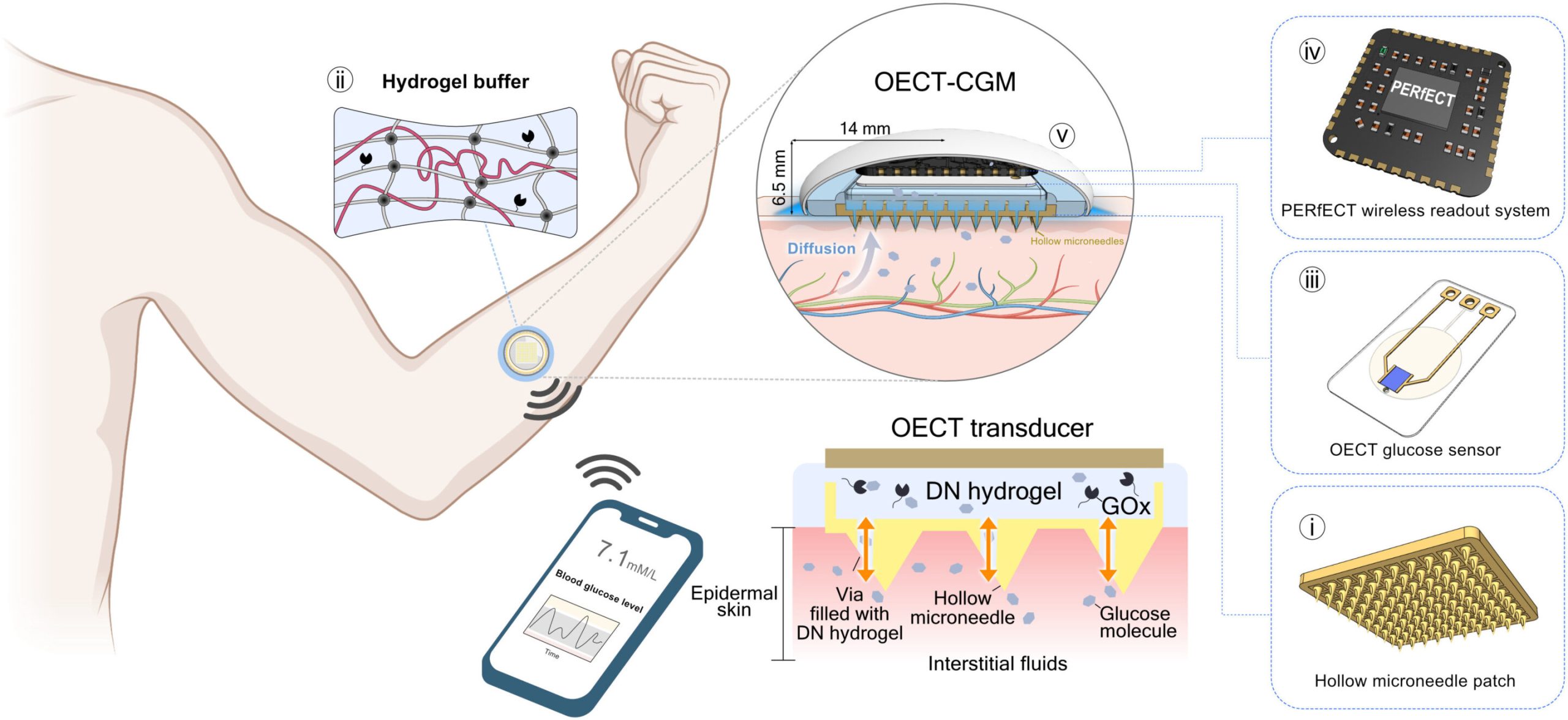
Leveraging rapid technological advances for human health is a global trend, driving the rise of biomedical engineering research.
An interdisciplinary research team, including the Faculty of Engineering and Li Ka Shing Faculty of Medicine at The University of Hong Kong (HKU), Zhejiang University, and Guangzhou Medical University, has developed a continuous glucose monitoring (CGM) system that represents a major advancement in wearable health technology and is set to revolutionize diabetes management.
Their research has been published in Science Advances, titled “Coin-sized, fully integrated, and minimally invasive continuous glucose monitoring system based on organic electrochemical transistors.”
Led by Professor Shiming Zhang of the Department of Electrical and Electronic Engineering at HKU, the new CGM system, termed OECT-CGM, features a compact, coin-sized design integrating state-of-the-art biosensors, minimally invasive tools, and hydrogels.
The core part of the device is the organic electrochemical transistor (OECT), a biochemical signal amplifier that significantly improves the signal-to-noise ratio (SNR) beyond traditional electrochemical sensors. This advancement is critical for providing accurate and reliable glucose readings essential for effective diabetes management.
The OECT-CGM includes a microneedle array for subcutaneous glucose sampling with minimal pain and discomfort, addressing one of the major drawbacks of existing CGM devices, deemed invasive due to the requirement of a needle inserted under the skin, which can cause discomfort.
Additionally, a viscoelastic and diffusive hydrogel stabilizes the interface between the skin and the device, ensuring the sensor remains secure and effective during use.
The OECTs in the integrated device achieve record-high sensitivity, a significant technical advance for body-centric health care. The performance, in rodent tests, is comparable to commercial CGMs currently available in the market.
“This fully integrated, wearable device promises enhanced anti-noise ability, reliability, and wearability compared to traditional CGMs,” Professor Zhang said.
The research team believes that their work will push the boundaries of current wearable biosensors, particularly in challenging and complex environments. For instance, scenarios involving epidermal wearables in environments with significant motion artifacts and ambient noises.
Their next steps involve refining the device further and exploring its potential applications in various health care settings.
“This groundbreaking work not only showcases the innovative capabilities of HKU team but also sets a new standard for wearable health monitoring technology. The team’s dedication to improving the quality of life for individuals with diabetes is evident in this remarkable achievement,” Professor Zhang added.
Other collaborators of the interdisciplinary research include Professor Aimin Xu from HKU Li Ka Shing Faculty of Medicine, Professor Jinqiang Wang and Professor Zhen Gu from the College of Pharmaceutical Sciences at Zhejiang University, and Professor Jixiang Zhu from Guangzhou Medical University.
More information:
Jing Bai et al, Coin-sized, fully integrated, and minimally invasive continuous glucose monitoring system based on organic electrochemical transistors, Science Advances (2024). DOI: 10.1126/sciadv.adl1856
Citation:
Team develops next-generation wearable continuous glucose monitoring system for diabetes management (2024, September 18)
retrieved 21 September 2024
from https://medicalxpress.com/news/2024-09-team-generation-wearable-glucose-diabetes.html
This document is subject to copyright. Apart from any fair dealing for the purpose of private study or research, no
part may be reproduced without the written permission. The content is provided for information purposes only.


